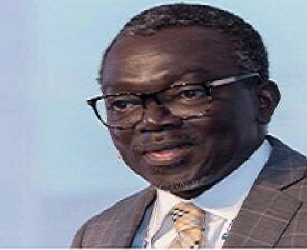Ghana’s ‘living with the virus’ strategy was an essential facilitator of good supply chain governance during the COVID-19 pandemic.
Speaking at the recent African Institute for Supply Chain Research, a continental network of supply chain management industrialists, professionals and experts focused on deepening industrialisation and supply chain thinking in Africa, I provided input on my ideas and experiences related to supply chain accountability and governance during the COVID-19 global pandemic.
Following the confirmation of the global pandemic my initial observations in Ghana revealed an initial sense of confusion, panic and doubt.
Inconsistent global messaging created uncertainties related to the causes, prevention and impact of the virus. This created a lot of fear and soon resulted in panic buying.
Panic buying and stocking up on water, sanitisers, face masks, food, drinks and toilet rolls was evident throughout Ghana. As such price gouging also became apparent in several industries.
Due to the various levels of lockdown business and industry began to suffer. Job losses and company closures led to an unprecedented economic crisis and the impact was felt across all sectors of society.
Tourism, hospitality, restaurants, catering, entertainment, retail, clothing and textiles, sports, construction and print media among many other industries experienced sharp declines in revenue which led to significant job losses.
Despite initial messaging, the Ghanaian government soon adopted a ‘living with the virus’ strategy and began to roll out regular, timely and scientifically sound updates to citizens.
A COVID team or committee was set up which included sectoral leaders and scientists. This team engaged various captains of industry to work towards an effective way forward for the economy and society.
Regular communication including presidential updates and briefings from the Department of Health were shared across communications platforms including radio, television and social media.
This communication together with a call for citizens to take active responsibility for their actions and health demonstrated effective leadership from the top.
This leadership from the top which focused on recovery rates and successes in containing the infections resulted in less fear and more optimism.
The Ghanaian government was able to create this enhanced sense of optimism through accountable leadership which was output driven, disciplined, had a respect for the rules and adopted a sense of functional pride.
Through collective efforts across public and private domains Ghana was able to create a sense of hope and facilitate a return to work that promoted carefulness and compliance.
The key was to adapt to our own specific context and not to just adopt global actions and responses.
In addition to this, timely communication, collaboration from various sectors and keeping things as simple as possible were key to facilitating good supply chain governance during the crisis.
The ingredients for good supply chain governance and critical service delivery during this and any crisis include: effective leadership, decisiveness, directional and strategic thinking, a simple framework, a strategic plan, tactical and operational implementation guidelines, common standards, abiding by the rule of law, inclusive and equitable participation, performance metrics, focused on the long term, monitoring & evaluation, open and transparent, adaptive and responsive and it should be consensus and developmental driven.
By taking a proactive approach to dealing with the COVID-19 crisis Ghana was able to drastically reduce infection rates and increase recovery rates.
Effective leadership provided industry with the guidance and support needed to weather the storm and we are starting to see several sectors beginning to bounce back from this devastating pandemic.
As of November 29, known infection cases totaled 51,379 with a recovery rate of 97.9 per cent, active COVID-19 cases of 1.5 per cent and unfortunate death rate of 0.6 per cent. Behind these relatively satisfactory statistics are human beings and families.
Secondly until there is an effective vaccine the SAR-COV-2 virus is certainly patiently waiting to attack its next victim. Therefore carefulness and compliance with the WHO safety protocols are still required and not carelessness and complacency.
Professor Douglas Boateng is an international chartered director and Africa’s first ever appointed Professor Extraordinaire for Industrialisation and Supply Chain Governance.
For more information: dboateng@panavest.com | www.douglasboateng.com

